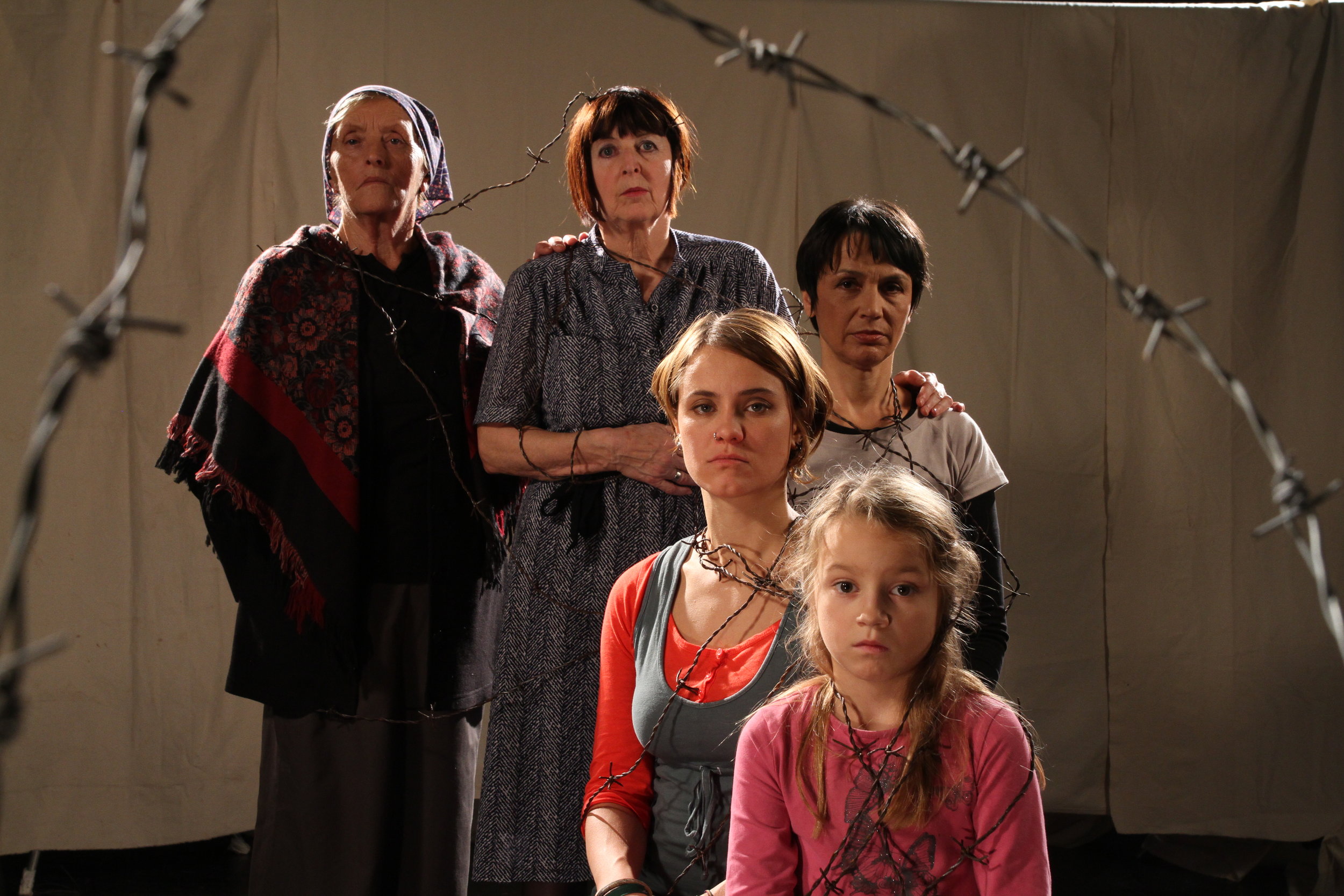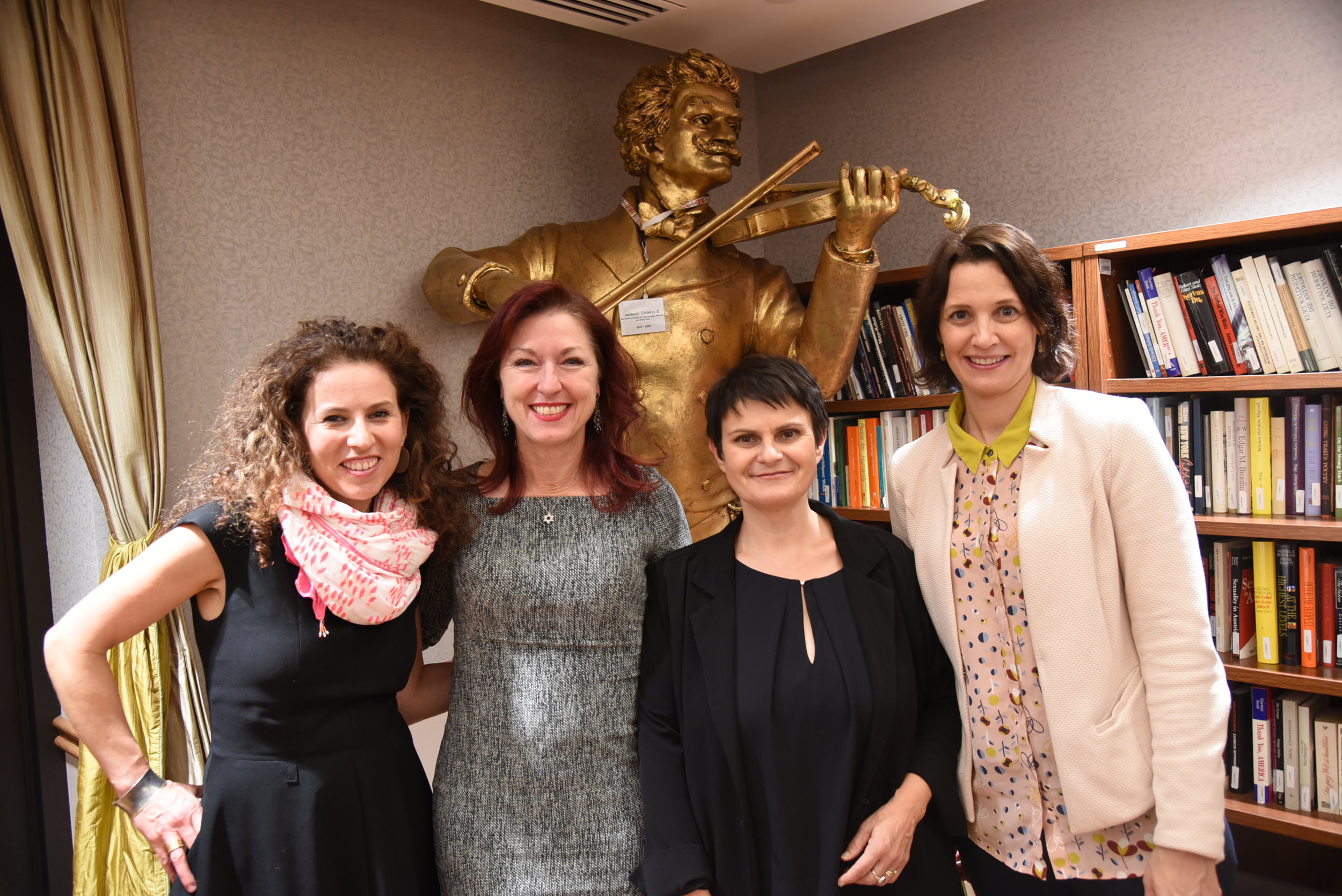SOME IMPRESSIONS
The ACF Washington was honored to present the screening of the documentary “Shadows of Shame” by Austrian filmmaker Sabina Zwitter-Grilc, which tells the story of three young women – a Carinthian Slovene, a Romni, and a woman of Jewish background – who want to find out why the suffering of their grandparents had such an impact on their lives and feelings. This is a journey from Austria to New York, in search for their roots.



The documentary connects the past with the present and thus shows what impact the unimaginable horrors of the Holocaust have had on second and third generation survivors. The event is part of our commemoration series, marking the Anschluss of Austria to Nazi-Germany in 1938 and the horrific events that followed.
The film screening was followed by a Q&A session moderated by Sarah Wildman.
When: Tuesday, October 30, 2018 | 7:00 pm
Where: Austrian Cultural Forum Washington/Embassy of Austria
3524 International Court, NW, Washington, DC 20008
Ticket: Free admission, registration obligatory
Parking on International Court is available after 6:30 pm (for the duration of the event) or on 36th Street; access to the Embassy through the park behind the building.
ABOUT THE MOVIE
Shadows of Shame is a documentary by the Austrian filmmaker and journalist Sabina Zwitter-Grilc, presenting gripping and often shocking stories of victims from three generations. Experts and artists describe the mechanisms involved in suppression, displacement and transfer of the agonies of the soul. The documentary shows how victims are turned into perpetrators around the world; how they are pressured into seeing themselves as being partially responsible for their own suffering. Instead of offering empathy and compensation to the survivors of the Holocaust and helping them to reestablish their faith in humanity at the end of World War II, Austria preferred collective amnesia.
The wounds to the soul that the Nazis’ victims have experienced manifest themselves in unique illnesses and traumas. These are unconsciously passed on to their children and grandchildren. The second and third survivor generations therefore think and behave in a very special way. “Shadows of Shame” allows victims to open their souls to us and reveal new and often surprising insights into a history we thought we already knew.
Many of the victims of the Nazi regime were intimidated by the social and political situation they faced after the war and withdrew themselves, silently concealing the shadows on their souls. Lily Bret, whose parents survived Auschwitz, set out to break through this wall of silence and to give the victims back their dignity. She was the first to deal with the horror in poetic form. The novelists Peter Handke and Maja Haderlap have created a literary memorial for the Carinthian Slovene victims. In “Shadows of Shame,” writers position themselves clearly on the side of those who have been robbed of their rights, language, and culture. They demonstrate how healing is indeed possible through empathy.
The experience of the Austrian Roma is told through a combination of pictures and words by the Stojka family. In “Shadows of Shame,” the musician Harri Stojka condemns the agony of the Roma. 95% of the Roma of the eastern province of Burgenland were murdered by the Nazi regime and today Roma settlements throughout Central Europe are under attack. Around the world, minorities are being persecuted, expelled, and murdered – and nobody seems to care.
“They touch the open wound, thus often causing the victims to be ashamed to be victims. That’s the problem and that’s the trick the rulers use; they humiliate them to such an extent that they feel ashamed and then turn them against their own people.”
“I was told not to talk about it. Nobody should know that you were in a concentration camp. You are living here in Vienna now. You’re attending school with children whose fathers were in the SS. Keep quiet.”
“We are confronted with a phenomenon in which the victims don’t want to speak because they are ashamed.”
ABOUT SABINA ZWITTER-GRILC
Sabina Zwitter Grilc is a Carinthian-Slovene editor, film journalist and documentary film maker whose work reports on and engages with Austrian minorities. After her studies in journalism and Russian studies in Vienna, which also included studies in Akron, OH, in France and in Moscow, she began working as editor at the minority desk of the Austrian Broadcasting Corporation (ORF). The documentary Shadows of Shame (“Schatten der Scham”) is a project in partial fulfillment of her PhD thesis at the Alpen-Adria-University in Klagenfurt/Celovec.
ABOUT SARAH WILDMAN
Sarah Wildman is a deputy editor and host of the First Person podcast at Foreign Policy. Wildman is the author of Paper Love: Searching for the Girl My Grandfather Left Behind (Riverhead). Prior to joining FP, she was the global identities and borders writer at Vox. She was the recipient of the German Marshall Fund’s 2010 Peter R. Weitz Prize, awarded for excellence and originality in European coverage. She was an Arthur F. Burns fellow in Berlin in 2008 and a Milena Jesenska Fellow at the IWM in Vienna in 2006. Sarah has been a regular contributor to the New York Times, Slate, the Forward, Washingtonian (where she is a contributing editor), and the New Yorker online, among other publications for a long time.









